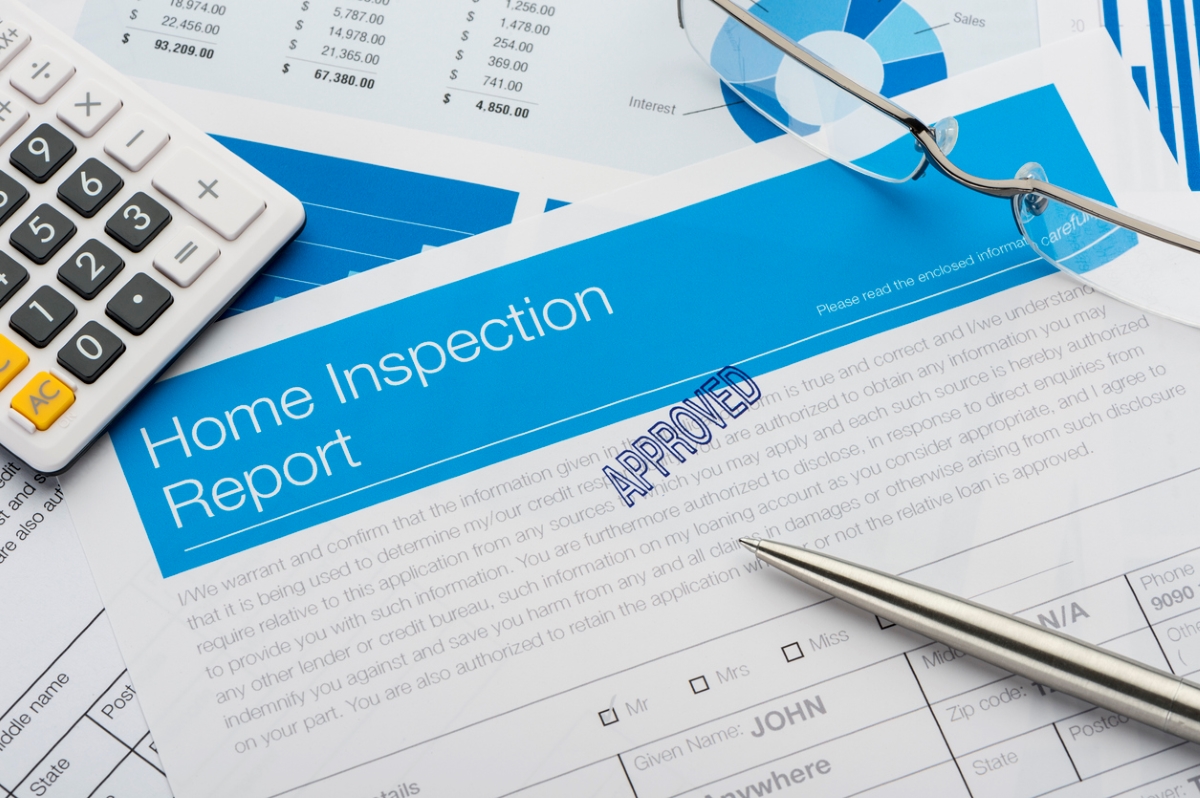

We may earn revenue from the products available on this page and participate in affiliate programs. Learn More ›
Q: After a few weeks of searching, I found a home that suits my budget and seems to be in good condition. Before making the final decision to purchase the house, I want to have the home inspected, but the seller is pushing back due to the time it will take to complete an inspection and to receive an inspection report. How long does a home inspection report take, and is there anything that can be done to speed up the process?
A: House inspections are sometimes passed up by prospective buyers that are just trying to get into a new home as fast as possible, but detailed home inspections are important to ensure that you get what you pay for without any lurking surprises. How long does a home inspection take is a common question, especially when sellers and their real estate agents are anxious about securing the sale. Don’t let their anxiety or pressure dissuade you from insisting on a real estate inspection.
On average, a professional home inspection will take about 2 to 3 hours, though this timeline can be longer or shorter based on several factors, including the size of the property, age of the home, and even the general clutter inside the home. After the systems and home structure inspection, it will usually take about 1 to 3 days to receive an inspection report.
RELATED: Guide to Buying Older Homes by Decade
What is a home inspection, exactly?

What is a home inspection and what do home inspectors look for are key questions to ask before hiring an inspector. Also, it’s recommended to find out what a home inspection covers, so you can better understand the inspection process.
A home inspection is a process wherein a licensed home inspector inspects the property, structural components, and major systems, including the heating and cooling, plumbing, electrical, and gas. After the inspection, the inspector puts together a detailed report of their findings and provides this report to the customer.
While home inspections can be requested by the seller, it is much more common for the buyer to hire a home inspector to inspect a property before finalizing a sale. The purpose of this inspection is to highlight any issues with the home, so that the buyer can make an informed decision about whether or not to go through with their purchase.
However, it’s also important to ask what home inspectors are not allowed to do. These professionals are experts in assessing major systems and infrastructure, but you should not rely on a home inspector for things like testing electromagnetic fields, air quality tests, or diagnosing the exact cause behind a visible problem.
What happens during a home inspection?
During a home inspection, a qualified home inspector will assess many aspects of the property’s condition, including the major systems. The inspector may start outside, where they can inspect the foundation, exterior walls, doors, and roof.
After assessing the exterior of the home, they will move indoors to inspect the major systems, look for fire and safety issues, check for evidence of insect, water, or fire damage, as well as assess any structural concerns and other things that fail a home inspection.
The inspector will typically have a home inspection checklist that can include making sure the doors lock and latch properly, the windows open and close, and that appliances are functional and in good condition. If there is an issue, they will report it as a deficiency in the inspection report.
They may also note whether there is an emergency exit or a fire exit for the home and whether the entry and exit to the property are safe for regular use. After the inspection, the inspector will put together a detailed report and provide the report to the customer.
A house’s size, age, and number of systems affect how long a home inspection will take.
The time it takes for a home inspector to completely inspect the house, property, and all of the major systems is heavily dependent on several key factors, including the size, age, number of systems, and the condition of the home. A small condo inspection may be able to be completed in just an hour, but a large home can take as long as 4 to 6 hours to properly inspect.
Older homes tend to have more problems, so when an experienced inspector is assessing the property, they will often take more time to inspect things like plumbing, electrical systems, and even the roof. Major systems, like the furnace, water heater, or air conditioner, take time to inspect properly. The more major systems a home has, the longer the inspection will take to complete.
Additionally, if the property is in poor condition, has inaccessible areas, or it is so cluttered and filled with the owner’s possessions that it makes it difficult to move around, then the time needed for the inspection can increase.
Home inspections take a few hours to complete on average.

A standard three bedroom home with two bathrooms will typically take about 2 to 3 hours for a thorough home inspection. Even if you are in a rush or if the seller is putting pressure on you to get the inspection completed quickly, it isn’t advised to prompt the inspector to speedrun the inspection process because they may miss something important.
Plan the inspection ahead of time and if there are any problems with the seller, ask your real estate agent to work it out with their agent so that you have ample time for the home inspection. If you have the time, it’s also a good idea to attend the inspection so that you can get a firsthand look at any potential problems. This will allow you to make an informed decision during pricing negotiations and help you decide whether or not to go through with the purchase.
There are some helpful things homeowners can do to make an inspection go more quickly.
From the buyer’s perspective, a home inspection is a great way to check out the property and identify any problems with the home. However, homeowners may not be so enthusiastic about vacating their homes for an inspection when the outcome of an inspection could lead to a decreased offer or even the cancellation of the offer entirely. However, denying an inspection is just as likely to cause problems. So, if the buyer wants an inspection completed, there are ways to speed up the inspection process and make it easier for the inspector to accurately assess the property.
If you are a seller, take some time to do a pre-inspection of the property and gather all maintenance receipts and information for the major systems of the home. Make sure that any keys the inspector will need are ready and available before leaving the property. Also, clean up the house and ensure that the inspector has access to appliances, major systems, and any hard-to-reach areas, like crawl spaces or cellars.
Buyers are often present during inspections, but that’s unlikely to affect how long a home inspection takes.
In most cases, a home inspection will be requested and paid for by the prospective buyers to identify any problems with the property, confirm the seller’s statements about the property, and uncover any lurking issues. With this in mind, it’s a good idea for a buyer to be present during the home inspection so that they can take advantage of the inspector’s knowledge, experience, and insight.
Your presence during the inspection shouldn’t be a problem for the inspector and it gives you a great opportunity to ask any questions and see the potential issues firsthand. This should not increase the length of time it takes to complete the inspection. However, having the seller on site with the buyer and the inspector may create some tension and discomfort, so it’s recommended to request to see the property without the seller present, allowing the buyer to be candid with their questions to the inspector.
RELATED: 8 Things Every Home Inspection Checklist Should Include
Home inspection reports take a little longer to come in.

After the home inspection has been completed, the inspector will take the information they have gathered and they will put together a home inspection report that details their findings, including any fixes that should be made before purchasing the property. Receiving the report will typically take about 1 to 3 days after the inspection, though it may be a bit longer if the initial inspection was completed on the weekend or at the end of a work week.
You can use the inspection report to negotiate a lower price, request specific repairs before purchase, or even as a reason to cancel the sale entirely. The home inspection is usually good for about 90 days after the report comes in, though this can vary depending on the inspector, so it’s recommended to speak to the customer service staff to find out how long the inspection company will warranty the inspection.
